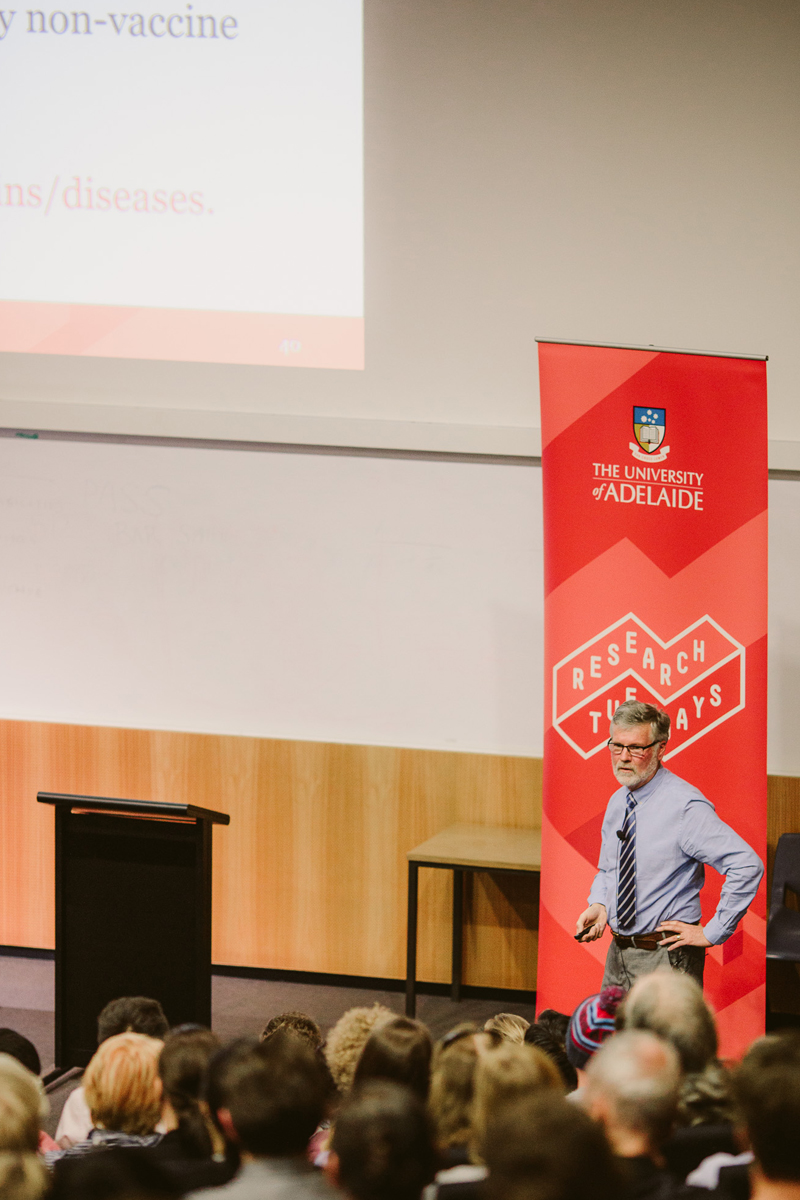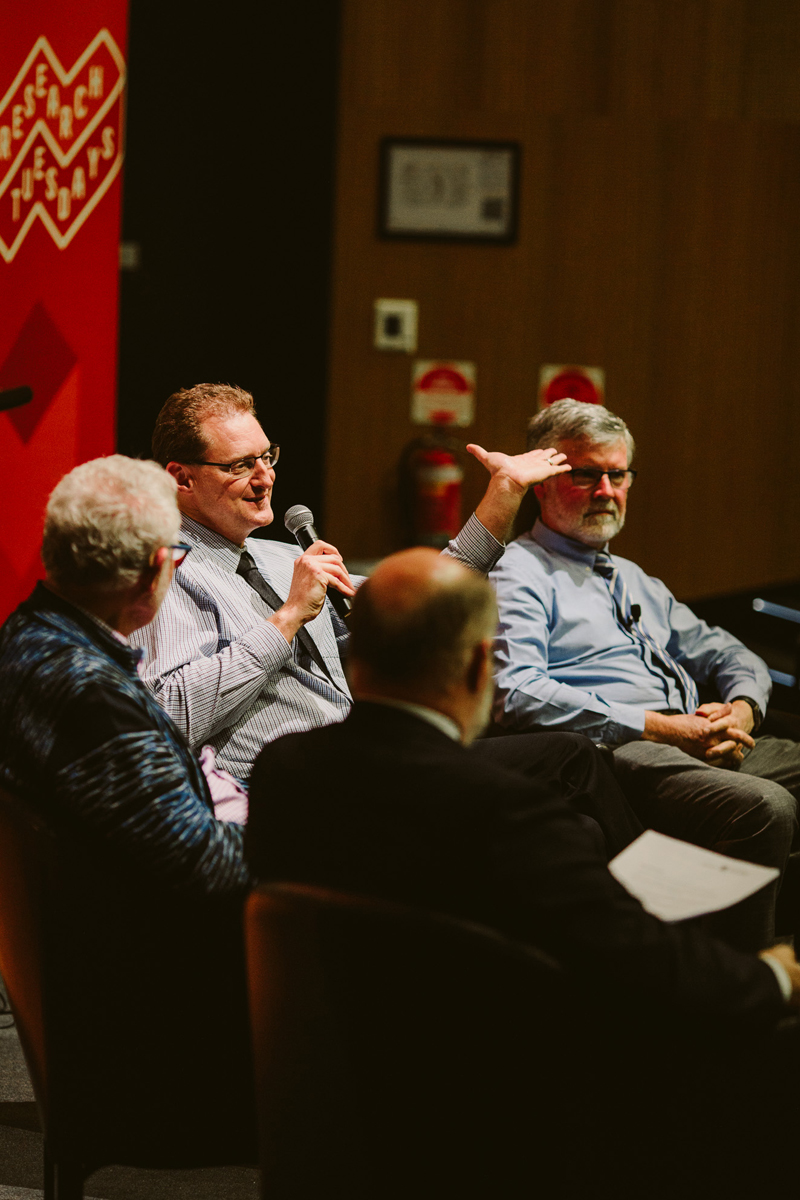If there’s anything that can save us from ourselves, it’s knowledge. Research Tuesdays bridges the gap between those who already know and those who really need to know.
For the curious: New knowledge for a new world
Somewhere along the way, as society was arranged and then re-arranged again and again, we became divorced from the pursuit of knowledge.
Knowledge is now a specialist field – the domain of researchers and academics.
Research Tuesdays events happen throughout the year – find the full program here. The next session will take place May 9 and focusses on childhood neurodevelopmental disabilities.
And yet, it’s not those specialising in knowledge who make the decisions about the big questions of our time. As the citizens of a democratic country, all of us have a tiny portion of our fingers pressed against the metaphorical red button.
It’s reassuring, then, to know that universities, researchers and academics are desperately keen to share their knowledge with us.
For more than a decade, the University of Adelaide’s Research Tuesdays program has been a banner under which – through monthly public lectures and panel sessions – knowledge and new thinking has found its way out of the hallowed university halls and into the brains of the general population.

The annual program is specifically designed to help the general public understand and engage with the biggest modern problems.
“We look at current events, topics that are in the news and have high public interest, things that generate debate or that people want different perspectives on,” says Professor Mike Brooks, the University of Adelaide’s Acting Vice-Chancellor. “We also consider State and Federal Government priority areas and keep a list of requested topics that our audience puts forward throughout the year.”
This year’s program takes in topics as wide-ranging as pandemic-level superbugs, global food supplies, and new information about Aboriginal Australians’ roots that made national and international headlines.
Creating a direct dialogue between researcher and the public is one of Research Tuesdays’ key strengths, as it allows for deeper insight.
“There’s a big difference between what can be conveyed in a short news story or a quick quote, compared to an hour-long explanation direct from the experts on a subject area,” says Professor Brooks.
“That’s what our audience seems to really enjoy, hearing from a researcher who has lived and breathed this topic for years, and who has so much knowledge to share.
“Also, while some of our research is in the media, there’s a lot of work that gets showcased at Research Tuesdays that doesn’t make it to the news… That doesn’t make it any less interesting to learn about!
“An example is last month’s talk on the use of drone technology to save orangutans in South East Asia. That’s not something that has been in mainstream Australian news, but it is still making a real difference to our environment.”

Making the presentation of findings accessible to a non-expert audience is also at the heart of the success of the Research Tuesdays model, which attracts between 300-400 attendees per session.
Experts are briefed to tailor their presentations to suit a “general but intelligent” audience, and audience Q&As are encouraged at each session to foster more engagement with the subject.
As much as the program benefits audiences, it is also a rare opportunity for academics to see their work doing what it is always designed to do – offer solutions to real life problems.
“Much of the research undertaken at the University of Adelaide aims to solve problems that the community or the world is facing,” says Professor Brooks. “Whether it be researching new vaccines, looking at solutions to energy problems, addressing climate change, these topics have real-life application and will eventually impact our community.
“Our researchers have a great role to play in in keeping the community up to date on our progress. This can help build knowledge, generate community debate, and ultimately influence public policy.”
An inoculation of sorts against a world where personal versions of the truth often seem more important than the truth itself, Research Tuesdays rewards curiosity with knowledge, and demonstrates that knowledge really can be powerful.
















